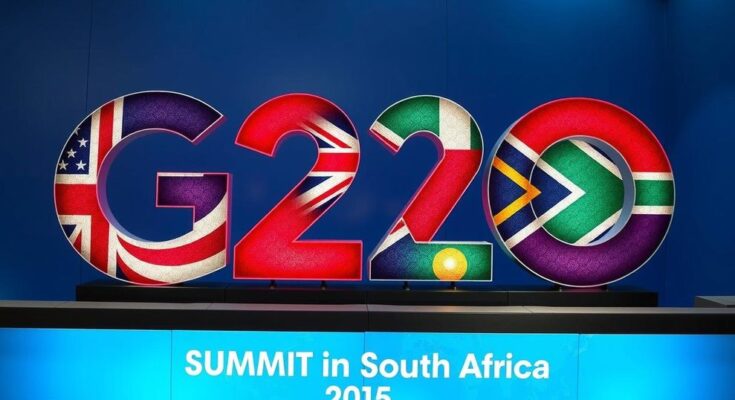South Africa has assumed the G20 presidency, becoming the first African nation to do so. President Cyril Ramaphosa has set a strategic agenda focused on climate change, debt relief, and economic transformation through the utilization of Africa’s mineral resources. His leadership is expected to tackle geopolitical challenges, particularly US-China tensions, while advocating for equitable policies benefiting the continent.
South Africa has taken on the G20 presidency, marking a historic moment as it becomes the first African nation to lead this influential group. President Cyril Ramaphosa has unveiled an ambitious agenda that emphasizes addressing critical issues such as climate change, facilitating debt relief, and driving economic transformation across the continent. A significant aspect of his strategy involves the utilization of Africa’s vast mineral resources, including cobalt sourced from the Democratic Republic of the Congo, to bolster sustainable growth and development in the region.
Additionally, under South Africa’s presidency, there is a recognized need to navigate the complex landscape shaped by ongoing geopolitical tensions, including the impacts of the Ukraine conflict. The country’s position as Africa’s largest economy places it in a unique position to mediate between various international interests while advocating for equitable developmental policies. Analysts highlight that Ramaphosa’s history of consensus-building will be critical as he leads the G20 during these challenging times, pointing to his role in crafting the 1996 constitution and his leadership during the recent BRICS summit.
The current geopolitical climate, characterized by escalating US-China tensions and increasing protectionism, presents a considerable challenge. However, Ramaphosa’s diplomatic skills, honed through years of public service, are anticipated to be pivotal as South Africa engages with its global partners to further the interests of the African continent. His leadership at this juncture is seen as a potential catalyst for advocating equitable participation and benefit from global economic discussions.
The G20 summit is a significant global forum that brings together major economies to discuss and coordinate on international economic policy. Established in response to the financial crises of earlier decades, the group plays a crucial role in addressing global issues that affect economic stability and development. South Africa’s presidency signifies a shift as it represents the African voice within this prominent forum for the first time, highlighting the continent’s growing importance in global economics.
In conclusion, South Africa’s G20 presidency under President Cyril Ramaphosa presents a distinct opportunity for enhancing continental development while addressing pressing global issues. His strategic focus on climate change, economic transformation, and debt relief, combined with the imperative of managing geopolitical tensions, underscores the complexities inherent in his leadership role. Ramaphosa’s track record in consensus-building offers a promising foundation as he seeks to harmonize divergent interests and advocate for Africa’s equitable inclusion in global economic discourse.
Original Source: iafrica.com




